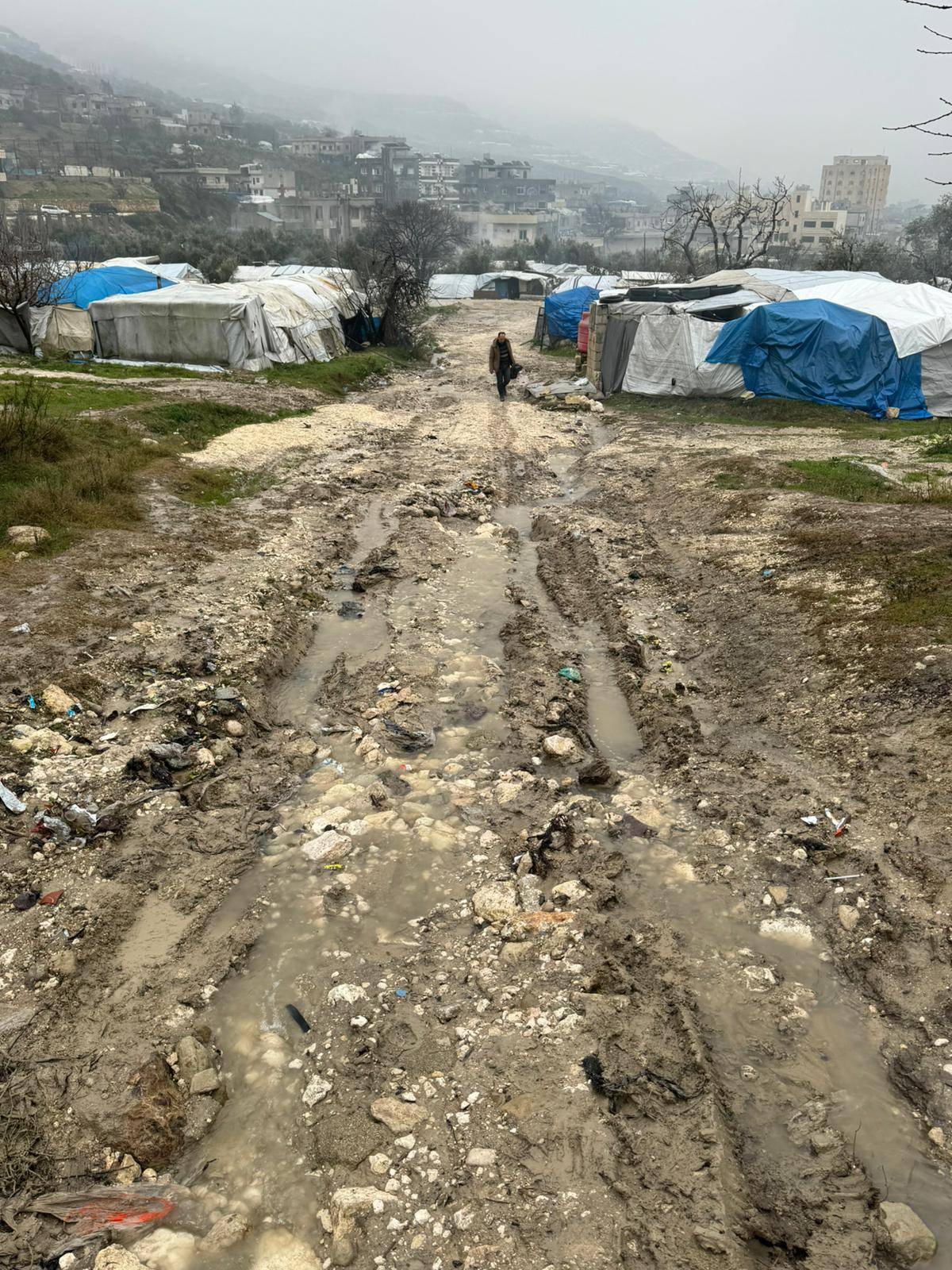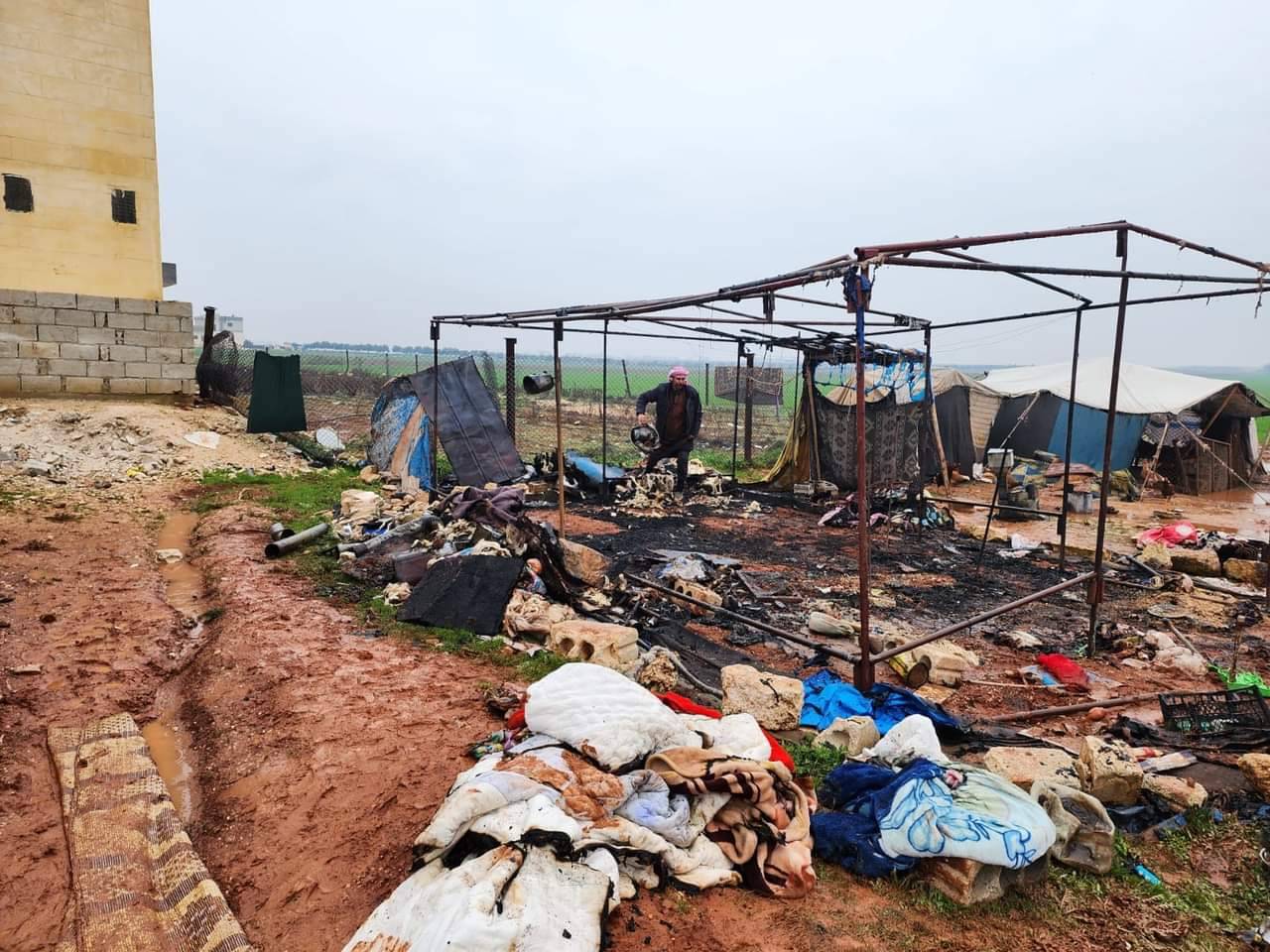NW Syria suffers nexus of flooding and bombing
NW Syria suffers nexus of flooding and bombing
For seven days nonstop, heavy rains showered the northwest of Syria, destroying dozens of internally displaced peoples’ tents and forcing them to go to safer refugee areas, amid bombings by pro-Iran and pro-government forces on the civilians.
Unprecedented heavy rains have beaten the areas that had witnessed water scarcity for three years, said Ahmed El Khateeb, spokesman for the Syrian Civil Defense (White Helmets) in northwestern Syria, in comments to Jusoor Post on Thursday.
The rains were too heavy and pushed Turkey to open its dam to release water, leading to more floods in the Syrian territories, he continued.

More than 109,000 displaced people were affected as a result of the rainfall that led to damage in more than 309 refugee camps, equivalent to 18% of the total camps spread in the region, said Syria’s Humanitarian Response Group, noting that the region turned into a disaster area, which needs more than 20 days to recover from the current situation.
The affected areas started from the Kherbet Eljoz camp, west of Idlib, to the border camps near the northern countryside of Aleppo, in addition to the vicinity of the city of Idlib, Ma'arrat Misrin, Killi, Haranabush, Kafr Yahmul, Hazano, and Zardana.
There has been a complete absence of humanitarian response by all agencies working in the region, with the bad weather conditions increasing fears of exaggerating and worsening the situation, the Humanitarian Response Group continued, calling on humanitarian organizations and the international community to intervene quickly to relieve the afflicted people, meet their needs and basic services, and compensate for the damage resulting from natural disasters in the region.
Meanwhile, Khateeb clarified that the affected camps had been built randomly by the displaced people without taking into account whether the areas were suitable or not. He added that the majority of camps were built in valleys vulnerable to rains and floods, so some camps in Idlib were destroyed.

No human causalities have been reported due to floods, because the emergency response teams were able to evacuate the people and open safe waterways, Khateeb said, adding that although this relief response eases the situation, its work is not enough due to the large spread of refugee camps.
The affected people have been temporarily evacuated to other safer camps until new houses in northern Syria for displaced people can be constructed.
The White Helmets spokesman noted that in addition to these natural disasters, people in northwestern Syria have recently been subjected to attacks by Syrian President Bashar Al-Assad’s forces and Iran.
According to the Syrian Observatory for Human Rights, pro-Assad forces launched a missile that targeted civilians in the village of Kafraziba in Idlib on January 16, leaving one killed and 10 others injured.
One day earlier, Iran fired three missiles on the village of Talteta in the northern countryside of Idlib, destroying a building that was previously used as a medical center, Enab Baladi's correspondent in Idlib reported.







